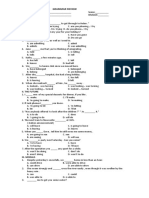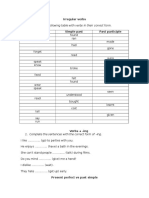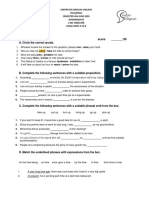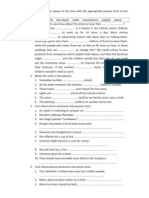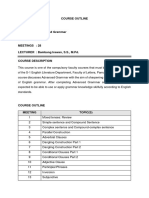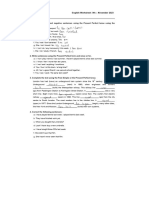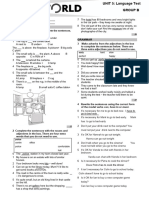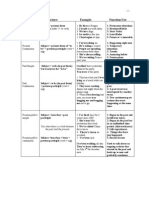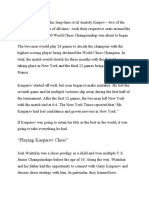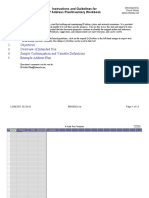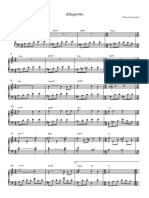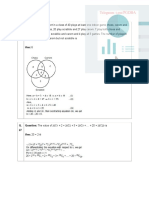A Report
The aim of this report is to examine the transport situation in Ludford, a small market
town in the north of England. No doubt, the issue is vital for the local environment.
Certainly, there are several positive things. The first and foremost, there is a train
station plus a free car park. Trains are regular and in addition there is a frequent service at
weekends and at holiday times. Then there is a good bus service from the main square to all
parts of the town. The bus fares are also quite cheap. Finally, there is a good bicycle track
which runs by the side of the river. It provides the inhabitants with a certain level of comfort.
However, there are many things which could be improved this or that way.
Unfortunately, a main road goes through the town centre. It causes a lot of traffic jams as
well as a lot of pollution. Moreover, a lot of heavy traffic comes through the town. The
lorries damage the historic buildings and they are dangerous for any passerby too. Surely,
traffic goes round the main square but it goes past the school and there have been fatal
accidents recently. Although there is a bicycle track near the river, it is rather dangerous to
ride a bike in the centre of the town. So, some urgent steps should be taken in this sphere.
To sum up, on the one hand Ludford is an attractive town with good shops and many
places of interest. On the other hand, the local councils need to do something to control the
traffic which passes through the town.
Complex Object
Ex.1. Complete the following sentences using the infinitive with or without to.
1. The teacher asked us ________ (listen) to his explanations.
2. He made the students _____________ (write) the composition.
3. The teacher let us ____________ (use) the dictionaries.
4. The teacher noticed me ____________ (open) my dictionary several times.
5. I made myself ____________ ( write) as neatly as I could.
6. The teacher watched us _____________ (work) and didn’t say anything.
Ex. 2. Open the brackets and use the Complex Object.
1. Do you want (they / stay) at the hotel?
2. I would like (the professor / look through) my report.
3. We considered (he /be) an honest person.
4. I would like (the dress / buy) by Sunday.
5. He doesn’t want (they / be late) for dinner.
Ex. 3. Combine the sentences using the Complex Object.
1. They didn’t notice us. We passed by.
2. Mike heard Sam. She was playing the violin.
3. I felt her hand. It was shaking.
4. I heard them. They were arguing.
5. We many times heard him. He told this story.
6. He saw her. She burst into tears.
7. I haven’t heard him. He called my name.
8. The nurse watched the boy. The boy cried.
9. I felt his hand. His hand trembled.
10. We saw a man. The man pulled the door open.
Ex. 4. Turn the following sentences into sentences with the complex subject.
1. I think she will phone. (expect)
2. My father said I could use his car. (allow)
3. I suggested that she should go home. (ask)
4. I asked my friend ‘Can you help me?’ (ask)
5. I think you should know the truth. (want)






